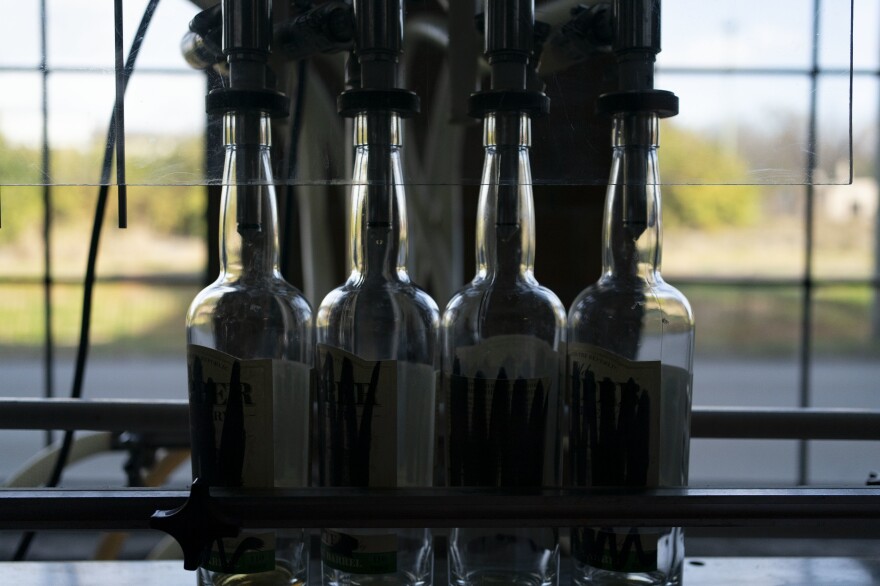Amir Peay had high hopes when he salvaged the abandoned 140-year-old James E. Pepper Distillery near the heart of Lexington, Kentucky. After years of planning and renovations, it was finally ready to produce whiskey on site in 2017. But Peay's hopes were dashed a few months later, as the European Union imposed tariffs on American whiskey.
"We thought we could really grow our business over there," says Peay. "That is, of course, until June of 2018 when, out of the blue, American whiskey got dragged into a trade war."
But now, Peay and whiskey distillers across the U.S. are raising their glasses and setting their sights, once again, on Europe. The U.S. and European Union announced a trade agreement last month that effectively lifts the 25-percent tariffs on American whiskey come January.
The tariffs, which had been levied as part of a growing trade dispute between the Trump administration and the E.U. over steel and aluminum, also targeted American exports such as motorcycles and denim, and stymied international growth for the burgeoning American whiskey industry.


Europe is a major importer of American spirits, yet distillers saw a 53% decline in American whiskey exports to the U.K. and a 37% decline to the E.U. while the tariffs were in place, resulting in over $300 million in lost revenue, according to the Distilled Spirits Council.
Then COVID-19 exacerbated the pain of small distillers as they were forced to close their doors to tours and tastings, and bars and restaurants shut down.
"In the beginning, when the pandemic hit, you know, myself and us, as a company, we were really, really nervous and scared," says Peay, adding that bars and restaurants made up nearly half of his business at the time.


The distillery pivoted to retail sales. And with more people drinking at home throughout the pandemic, the company sold a record number of cases of whiskey in 2020, Peay says.
"We had very strong domestic growth," says Peay. "But it made us change how we wanted to allocate stock to Europe, and it altered what was going to be our growth trajectory in Europe."

It could be hard for smaller craft distillers to reclaim the space they lost on European store shelves when the tariffs were imposed, now that distributors have adjusted their purchasing strategies.
"Once you're off the shelves, it's like 300 times harder to get back on," says Sonat Birnecker Hart, President of Koval Distillery in Chicago, Illinois.


Hart says Koval decided to keep its prices steady, essentially eating the excess cost of the tariffs, in order to maintain existing relationships.
"We had to show them that we were in it for the long term," says Hart.
So when the Biden administration announced that it had come to an agreement with the E.U. to lift the tariffs, Hart saw reason to celebrate.
"We took out the bourbon cocktails to toast that the tariffs had gone away" says Hart. "That being said, you know, there's still work to be done."


Especially when it comes to Britain. The U.K. is no longer part of the E.U., thanks to Brexit, and has yet to remove its tariffs on American whiskey.
Yet Amir Peay in Lexington is optimistic a deal will be struck and demand for U.S. whiskey will increase.
"It's not a light switch. We can't just flick it and immediately just, 'Let's go back to what we had,'" he says. "I'm not sure about 2022, but I am confident that 2023 and beyond... It's a very bright future for American whiskey in Europe."
Copyright 2023 NPR. To see more, visit https://www.npr.org.



